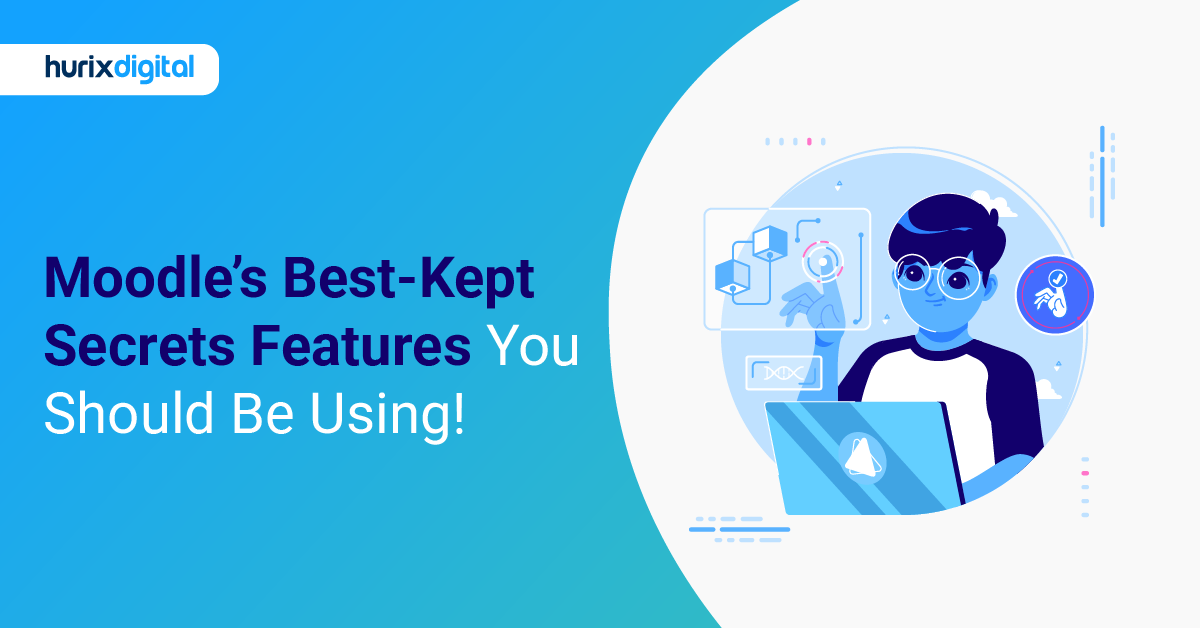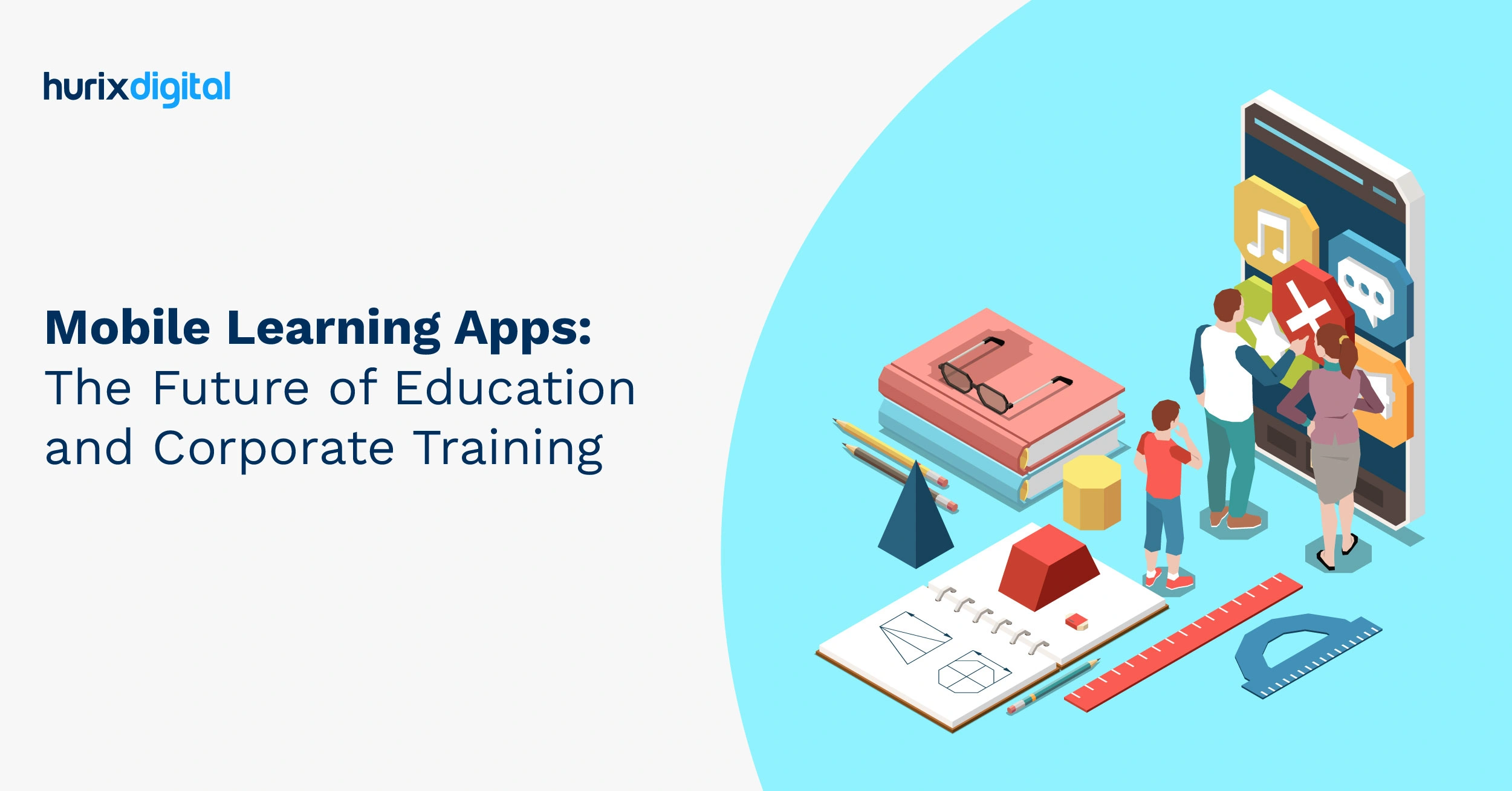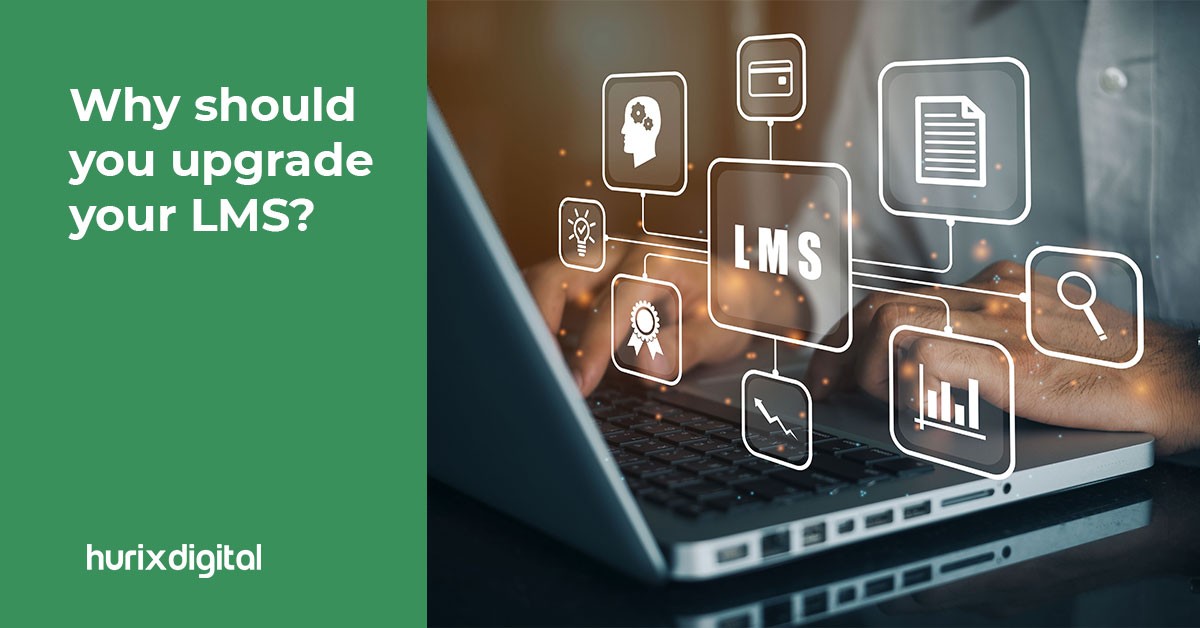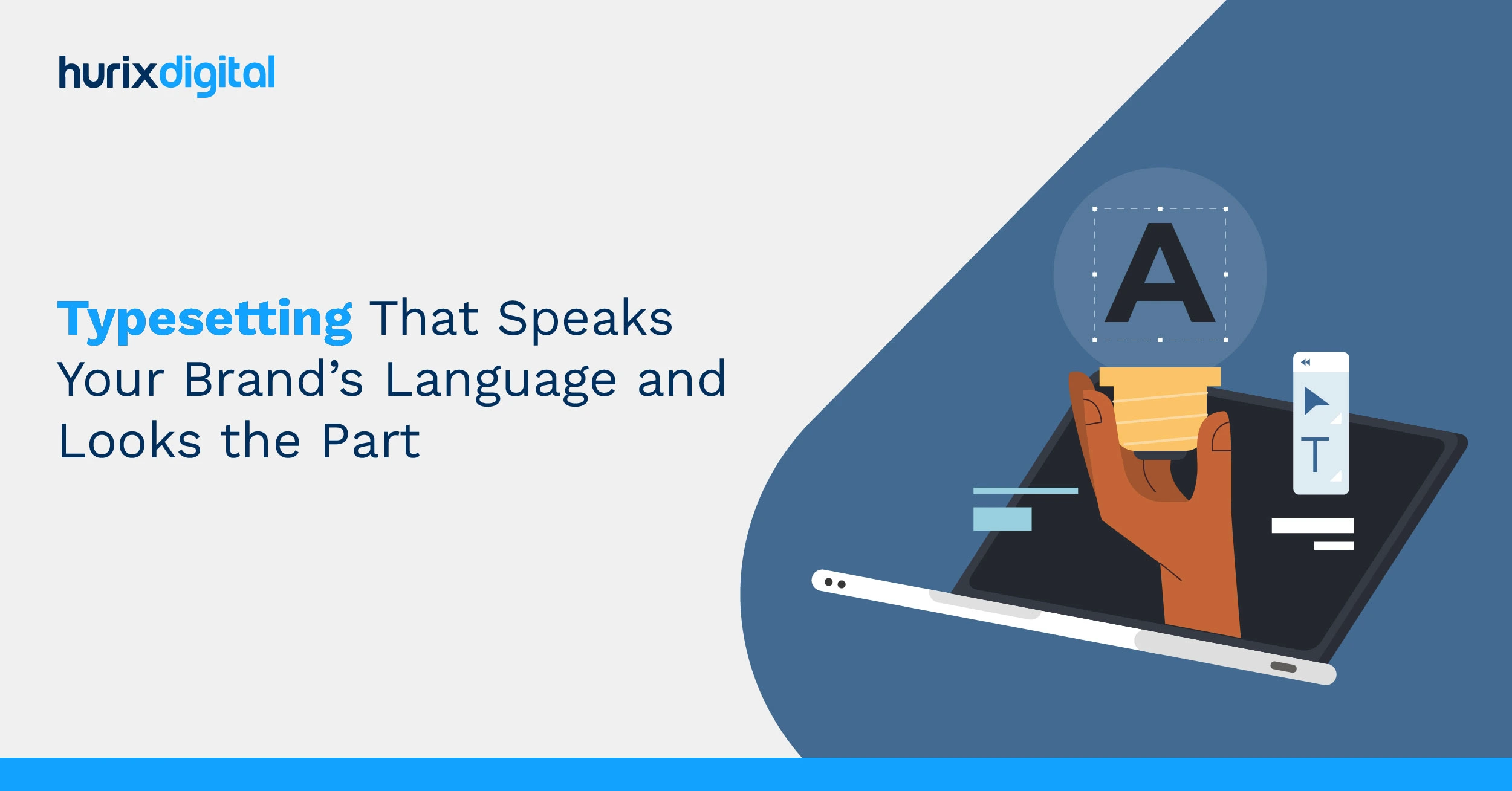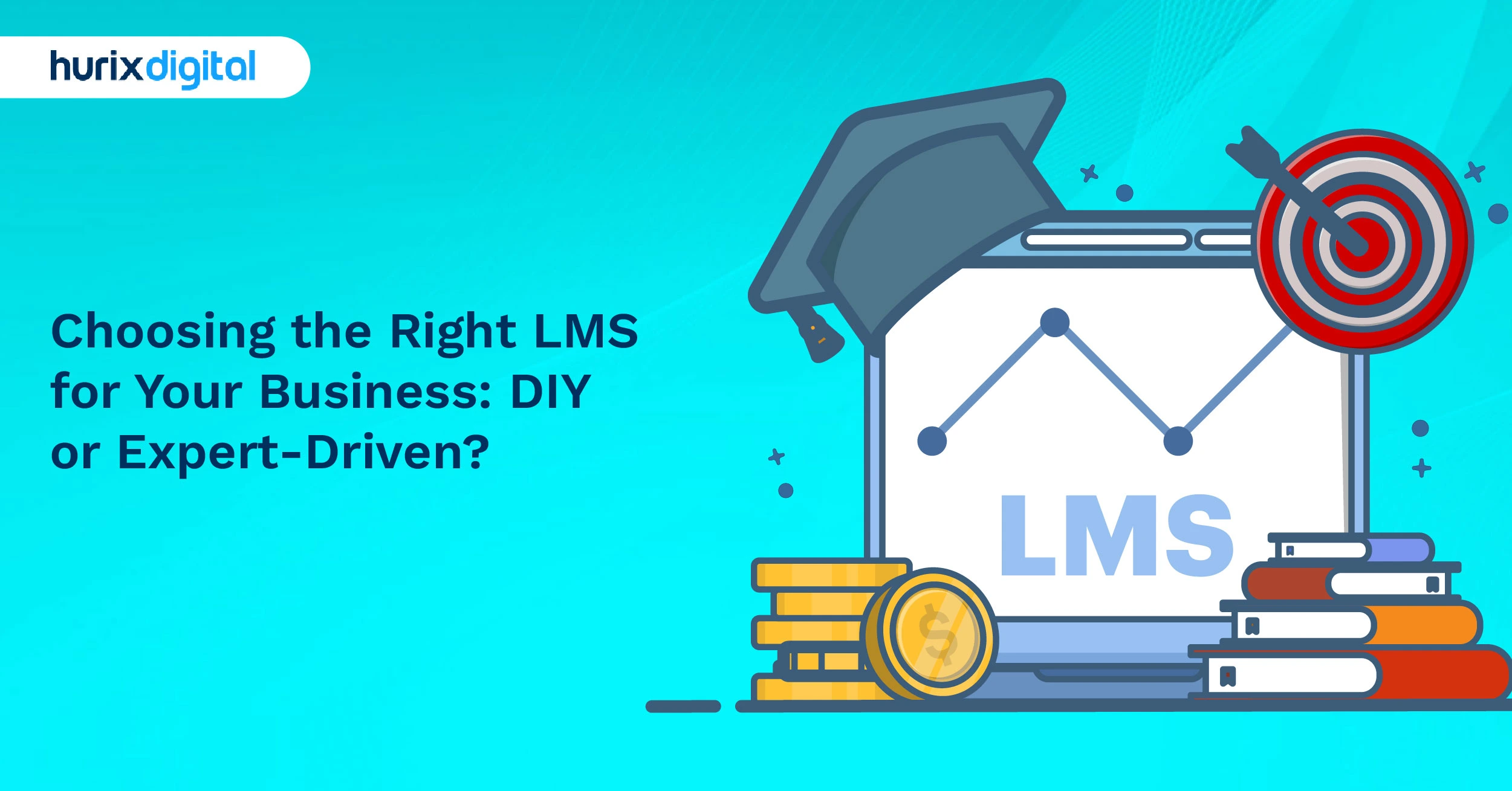
Choosing the Right LMS for Your Business: DIY or Expert-Driven?
Summarize with:
An LMS is a software application, also known as a learning management system, that helps educators manage and track students’ learning progress. It provides a platform for educators to share resources, manage assignments, and track student performance.
The LMS market is projected to become a US$29 billion industry by 2026. LMSs enable educators to create and administer tests, manage student files, and communicate with students and parents. In other words, a good LMS can make your job as an educator much easier and more efficient.
When choosing an LMS, it’s important to consider your needs and preferences. Some features you might want to consider are the system’s capabilities, ease of use, and number of features it offers. These can either be implemented independently or accessed by hiring LMS providers.
Table of Contents:
- What is an LMS Service?
- What is the Use of an LMS?
- Building an LMS By Yourself Vs. Hiring LMS Providers
- Should You Implement an LMS Yourself or Hire a Provider?
- Factors to Consider when Choosing an LMS Service
- 3 Options Available for Companies Looking for LMS Services
- Choosing the Best Learning Management System Platform: A Step-by-Step Guide
- Conclusion
What is an LMS Service?
An LMS, or Learning Management System, is software designed to manage an organization’s learning and development needs from start to finish. The LMS services industry is estimated to be valued at $23.21 billion by 2023 and $40.95 billion by 2029.
When selecting an LMS service, companies often make a couple of mistakes, which can impact the development of their talent. These mistakes typically include:
- Only considering the company’s short-term L&D needs.
- Not having the technological prowess to manage and use the chosen LMS.
- Selecting the LMS with the wrong set of features or insufficient features.
- Not providing sufficient learning flexibility, personalization, and engagement.
- Making the LMS only laptop/desktop compatible and ignoring mobile compatibility.
- Not investing in L&D analytics and reporting.
- Not upgrading the LMS as the company grows and L&D requirements change.
Knowing how to circumvent these issues can help your organization select an LMS service that perfectly fits your company’s changing needs.
What is the Use of an LMS?
An LMS is a software system that helps educators manage and track the progress of students’ education. It provides a user-friendly platform for administrators to monitor and track the academic resources and assignments for students, as well as communicate with students and their families.
LMSs are commonly used in schools, colleges, universities, and other educational institutions. They are a great way to keep an eye on students’ progress and evaluate the progress of your courses. They also make it easy to create and manage course materials and can help you monitor student grades and attendance.
In addition, LMSs can help you create online forums and discussion boards, which can be a great way to connect with your students and provide them with valuable feedback.
Finally, LMSs can help you manage your online course content and promote it through social media platforms like Facebook and Twitter. So if you’re looking for a way to improve your teaching skills and track student progress, a learning management system is a great option.
Building an LMS By Yourself Vs. Hiring LMS Providers
- Expertise: Although one can build an LMS on their own, it won’t be as perfect as what is required to run it perfectly. So, expert LMS providers would definitely help in this case and perfectly fulfill the requirements you have from the LMS.
- Cost: The second argument that comes up is the cost of making an LMS. Building an LMS is a strenuous affair. You need a solid plan, a tie-up with an LMS design partner, find the MVP, choose the UX, test the LMS solution on users, and more. All of these can pose problems if you do not have the know-how of the process. In contrast, professional LMS providers have all of these at their disposal. They can conveniently understand your LMS requirements and provide cost-optimized solutions.
- Time: This is an important aspect of an LMS. You would spend a lot of time creating an LMS, and there is no certainty that it would fulfill your needs. In contrast, LMS providers have adequate expertise in creating LMSs on time.
- User Experience: This is one of the most important aspects that must be perfect. This can be best provided to users when an expert works on it. So, an LMS provider is the best choice to give your users the best experience.
Should You Implement an LMS Yourself or Hire a Provider?
When it comes to LMSs, business owners are often confused. Many believe they can build their own LMS from scratch. However, this is not always the case, and in some instances, it can be very difficult and time-consuming.
Instead, hiring LMS providers to create and manage a professional LMS for you is often more cost-effective. There are several reasons why:
- For one, a provider will already have experience creating and managing LMSs, making the process smoother and easier.
- Providers typically have access to a wide range of features and capabilities you may not be able to explore by yourself.
- LMS providers have proven capabilities in course management, online learning, and student tracking. In addition, they typically offer various customization options, allowing you to tweak your LMS to reflect your specific needs.
So, if you are looking for an LMS that meets your specific needs, a provider is the best option. This would ensure that the LMS provider itself fulfills all the needs and requirements associated with the LMS, and there would be no stress for the management.
Factors to Consider when Choosing an LMS Service
Based on these commonly made mistakes, companies should consider the following factors when investing in their LMS:
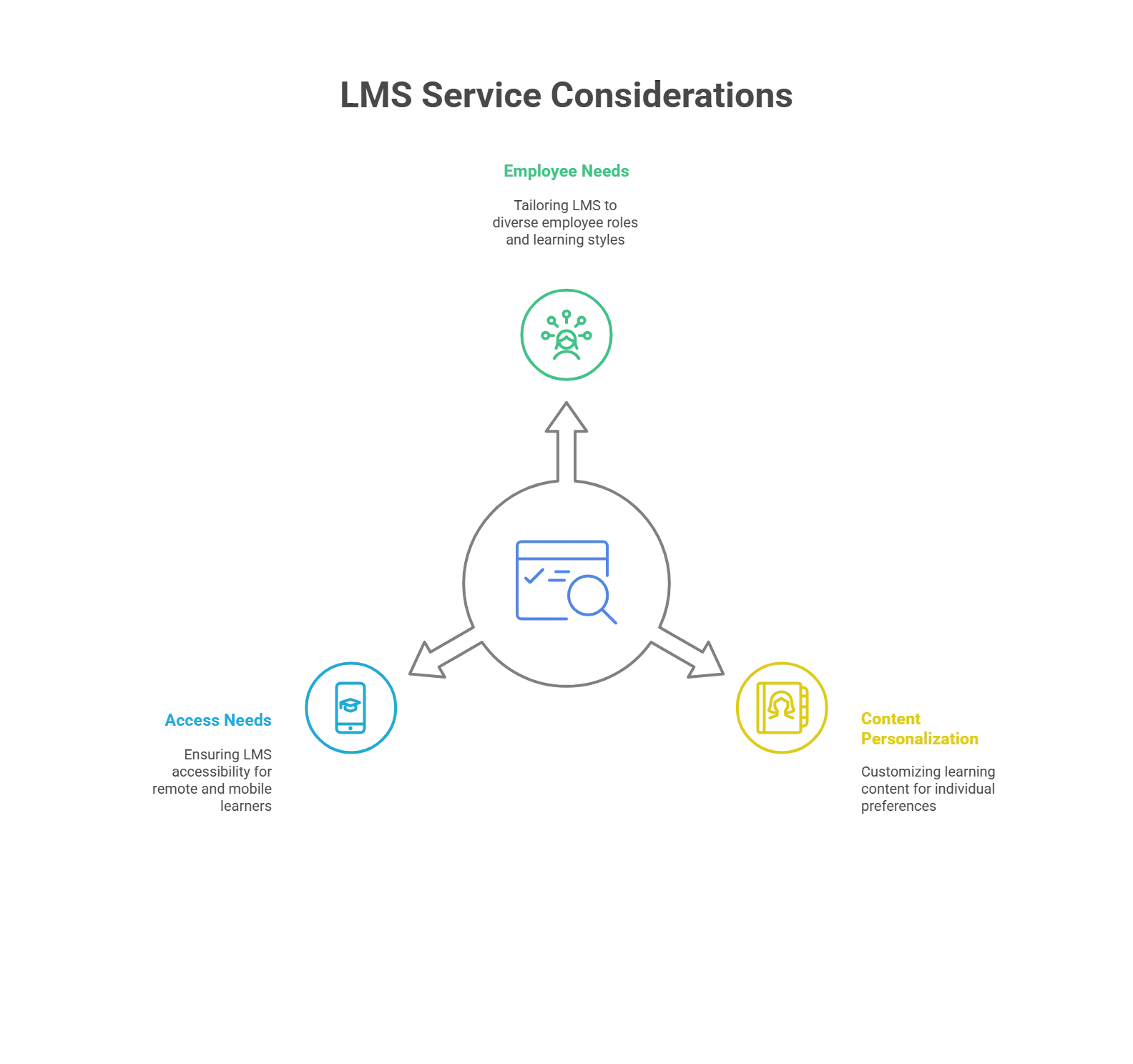
1. The Specific Needs of Every Type of Employee
Each type of employee – front-line, middle management, C-level, people-facing, technology-oriented, etc. – will have unique L&D requirements. You need to consider if the LMS service you pick is flexible and scalable to suit the distinct needs of each user group.
Essentially, the LMS service should cater to employees’ different technical and soft-skill levels at different points in their careers at the company.
Your LMS should accommodate individual and group learning sessions as needed. It should also support in-office, remote, and hybrid learning environments.
2. The Personalization Requirements of the Content
Speaking of personalization, every learner has a unique learning style. While some are visual, others are auditory. While some learn better through detailed text, others respond very well to games and quizzes.
The LMS service chosen must have the features needed to customize the learning experience. You should be able to create and share different types of content based on the audience and goal of the training.
If you have employees working across different time zones or within unconventional team structures, the LMS must be able to support their learning needs.
Consider the differences in training requirements for teams and individual contributors as well. The LMS service must allow the creation of personalized learning paths that support employees at their learning stage and career path.
3. The Access Needs of Different Teams and Employees
L&D has gone beyond the conventional boundaries of boardrooms. Today, more employees take up corporate training and skills development either from their homes or when on the move.
Teams such as sales, event management, or security will find mobile training ideal when on the field. Research shows that when companies make training accessible on mobile devices, it increases productivity by 40%.
McKinsey calls this “mEducation” – an L&D solution available to learners anywhere, anytime, through 2G/3G/4G/5G.
Your LMS service should support mobile learning and offer options for downloading content for offline viewing. This can help your employees access their lessons and skill-development tasks wherever they are.
In the age of the digital nomad, such an LMS service can help organizations gain a tremendous competitive advantage.
3 Options Available for Companies Looking for LMS Services
There are three things a company can do when considering investing in an LMS service:

1. Create Your Corporate LMS
Instead of choosing an LMS service, you could build one from scratch. Building a bespoke LMS service for your organization can give you the highest degree of customization possible. Your LMS service can be anything you need.
However, building an LMS can take a lot of time, money, and effort, which many organizations may not have. Additionally, companies must have a high degree of technological savviness to manage such a custom-built LMS service.
If your organization is not tech-centered, the LMS can quickly become a legacy system that ceases to benefit your firm. From software integration issues to data security concerns to scalability problems, there may be many costly issues to contend with.
2. Purchase an Off-the-Rack LMS Service
Another option for companies is to purchase an off-the-shelf LMS. Such a service can be great if they’re on a tight budget or need simple features for their L&D programs.
This type of mass-produced LMS can be implemented very quickly, with the least technical training, and can be perfect if you need a short-term LMS service.
On the other hand, an off-the-shelf LMS service can offer the least degree of personalization. The LMS may possess only a handful of features and may put a wrench in your corporate training and upskilling plans.
So, despite saving a few thousand dollars at first, you may spend more than your budget later trying to upgrade the LMS service you do have.
Other issues with off-the-shelf LMS are infrequent updates and security patches. Plus, the service may not be as scalable as you need, making it necessary to find another LMS service later.
3. Choose a Third-Party LMS Service Provider
The final option companies have is to hire a third-party LMS provider who offers a customizable LMS at an affordable cost.
An LMS is an integral part of a firm’s technological repertoire. Having a bare-bones model off the rack may not give you the competitive advantage you seek in the long run.
Similarly, a custom-built LMS may drain your resources too much, making it unsustainable in the future. A third-party LMS provider forms the perfect middle ground that organizations can benefit from.
It’s best to select an LMS service provider that offers a fully managed, open-source LMS. This ensures you have the highest degree of customization and quick software updates thanks to open-source technology.
Since these LMS providers often work with multiple companies, their solutions are also budget-friendly. They offer installation support and can help you scale your LMS needs as your company grows and transforms.
Plus, if you have any concerns or challenges, a customer service representative is always available to help.
Choosing the Best Learning Management System Platform: A Step-by-Step Guide
When you want to make your training delivery system future-ready, pricing shouldn’t be the only concern.
Instead, you must evaluate various other factors, such as your company’s needs, the stakeholders’ preferences, learning and development objectives, etc., before sifting through LMS platforms.
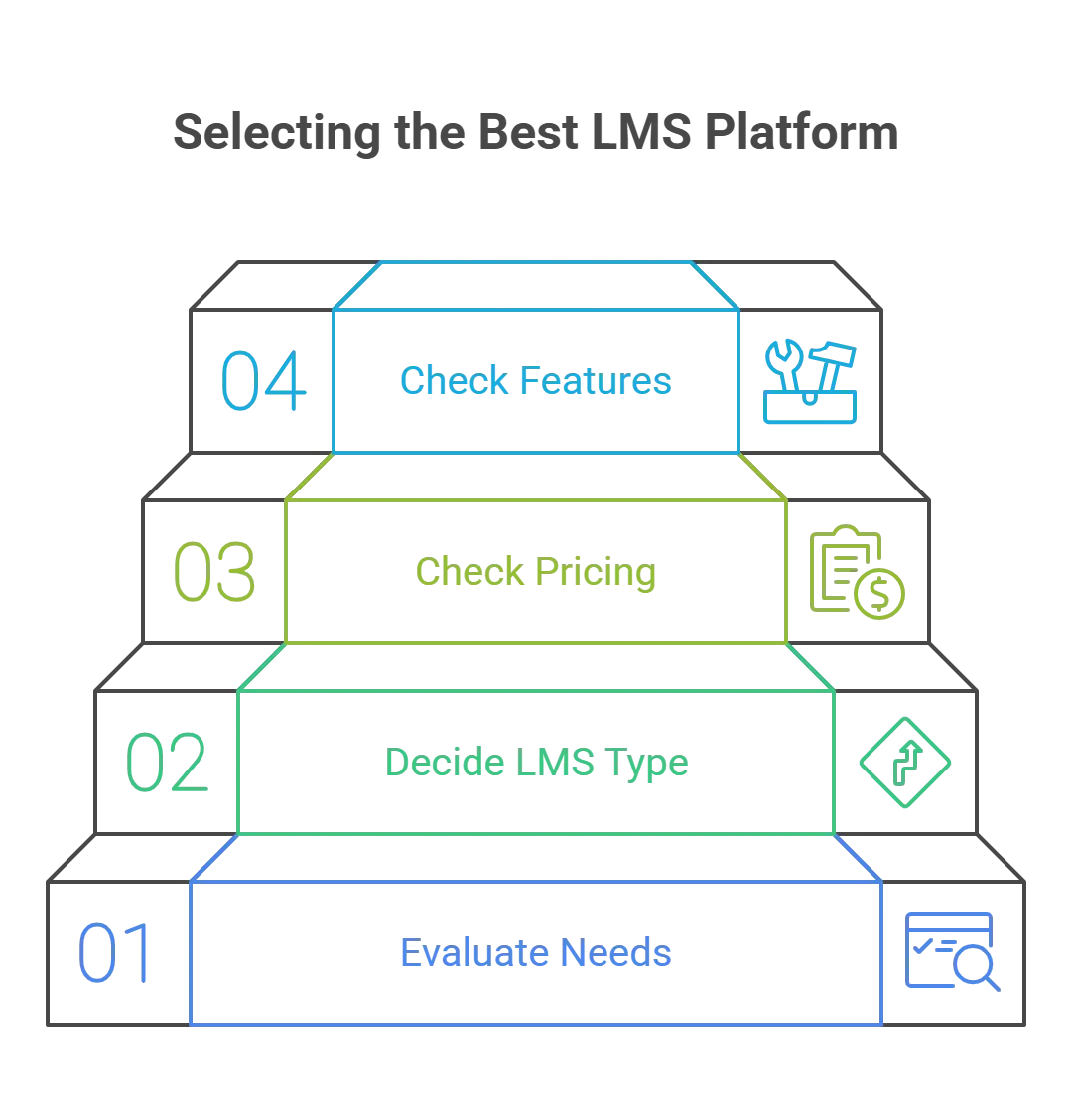
The following are some simple steps to pick the best LMS platform:
1. Evaluate Your Needs
Analyzing your needs is the first thing to do before comparing LMS platforms.
Different platforms offer different benefits, and knowing your needs is crucial to finding the best platform. Generally, corporate and higher education institutions use LMS platforms for the following use cases:
- Training Employees: LMS platforms enable smooth learning for employees. You can use an LMS platform to offer training to multiple departments without allotting separate training dates or venues. Moreover, you can conveniently track training effectiveness through advanced LMS analytics.
- Induction or Onboarding Training: Welcoming newcomers can be stressful. An LMS platform lets you automate the onboarding or induction process by designing training materials that explain the company’s history, rules, employees’ duties, leave rules, and other similar information.
- Knowledge Retention: Proper reinforcement is essential for keeping learners interested in the subject. LMS platforms simplify knowledge management by providing easy access to a massive knowledge base. While old learners or employees contribute materials on the LMS, new learners can check those materials to expand their knowledge.
- General Support: Sometimes, you may not want to shift entirely to an LMS. However, you can also transfer a part of your current training delivery model to an LMS platform to improve the output, such as to gamify learning, conduct tests, etc.
Identifying your needs or use case is vital for selecting the best LMS platform.
You can ask questions like, “Who will use the LMS?” “What kind of equipment or device will the trainees use? “Can the trainees access the Internet at all times?” to suit the training content according to their preferences.
2. Decide Which LMS Type You Need
LMS platforms are of two types: proprietary and open-source.
Proprietary platforms are fully owned by the developer, and the customer pays a decent sum to get access. Although a proprietary system limits customization to some extent, it offers excellent customer support, streamlined usage, and reliable service.
These LMS systems are ideal for people without the know-how to customize such systems or those wanting quick results.
Open-source LMS systems are often free or cost considerably less than proprietary ones. You can modify an open-source LMS platform according to your needs.
Be it custom features or third-party integrations, you may do anything with an open-source platform to suit your requirements. However, an open-source platform does not provide experts like proprietary platforms to help you during problematic situations.
So, choose the LMS platform type based on the features you need and your budget.
3. Check the Pricing
Proprietary LMS platforms offer incredible functionality and are easy to use. Moreover, you can control the pricing depending on your needs. Generally, proprietary LMS platforms provide the following three kinds of pricing:
- Pay-per-Learner – You pay a predefined sum for a fixed set of learners in this format.
- Pay-per-Active Learner – Unlike the previous format, you need to pay the platform owner only when learners use your platform in a billing cycle. So, if fifty members use your platform monthly, you have to pay only for the fifty members, not those you have invited to join.
- Subscription – This format is suitable if you do not know how many users will access the platform or how many will be active. You can browse the platform’s tariff plan to finalize.
4. Check the Features
The best LMS platform allows you to choose, collaborate, and customize content conveniently. You can also change the theme, look, feel, and design of the platform to reflect your company branding.
Moreover, when you use an LMS platform like Hurix, your content’s ownership and intellectual property rights remain with you. So, you do not need any user license to deliver the content.
High-quality LMS platforms also let you customize the workflow to match your organization’s user hierarchy and training needs.
Conclusion
Now that you know the top differences between building an LMS and hiring LMS providers, you should be able to make an informed decision. Hiring LMS providers is often the best option rather than creating one on your own. Choosing an LMS provider can be less costly and non-time-consuming, making it important to seriously consider this option.
When choosing an LMS, it’s important to evaluate your business needs. Do you need a platform that’s easy to use? Is storage space a priority? Is customization important to you? Once you’ve determined your needs, you can connect with the best LMS provider and explain your needs.
Hurix Digital offers a subscription-based LMS that can be conveniently set up in no time. Moreover, Hurix’s comprehensive support, maintenance, and upgrades ensure that your Moodle-based LMS delivers optimal performance whenever you need it.
Get in touch with us today!
Summarize with:

Vice President & SBU Head –
Delivery at Hurix Technology, based in Mumbai. With extensive experience leading delivery and technology teams, he excels at scaling operations, optimizing workflows, and ensuring top-tier service quality. Ravi drives cross-functional collaboration to deliver robust digital learning solutions and client satisfaction
 A Space for Thoughtful
A Space for Thoughtful 
